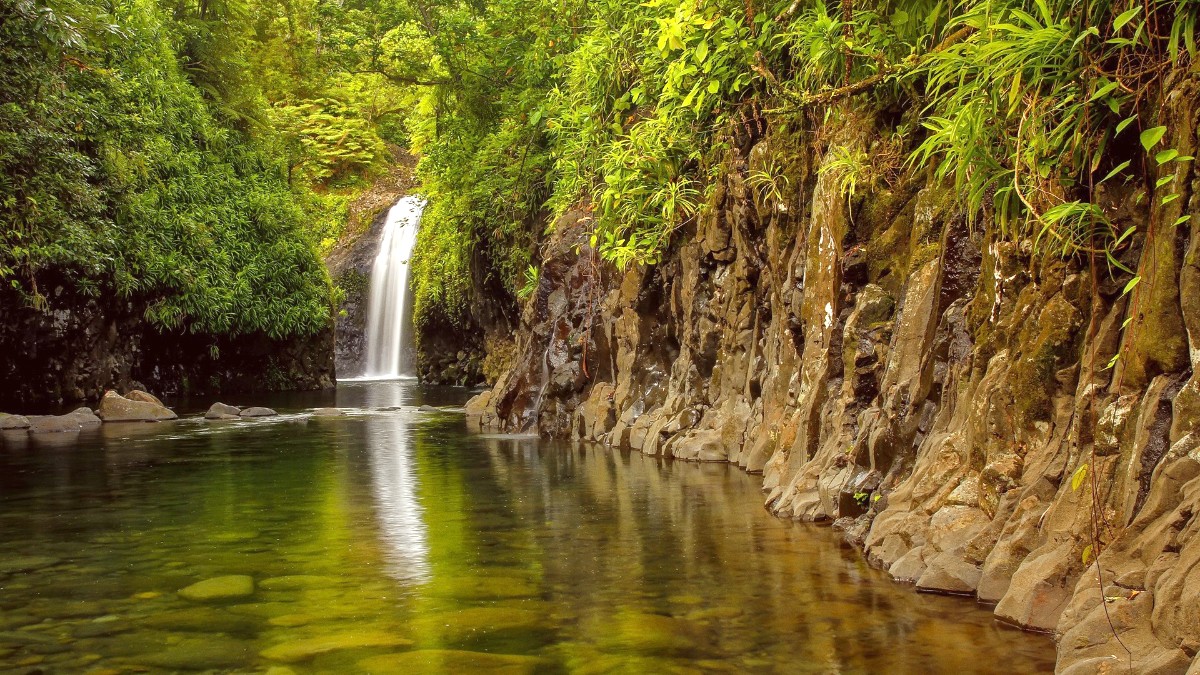
Fiji
The island experiences a tropical marine climate with two main seasons, each presenting different conditions and advantages.
Climate patterns throughout the year (temperature, precipitation, humidity):
Dry Season (May to October): This period offers cooler temperatures, lower humidity, and less rainfall. Average daytime temperatures typically range from 24°C to 28°C (75°F to 82°F). Nights are slightly cooler, making for comfortable sleeping conditions. Sunny days with refreshing trade winds are common.
Wet Season (November to April): This season is warmer and more humid, with higher rainfall. Rain often comes in the form of heavy, short showers, usually in the late afternoon or evening. Average daytime temperatures hover between 28°C to 31°C (82°F to 88°F). Humidity levels are higher, often exceeding 80%, which some travelers find less comfortable.
Fiji, Taveuni included, is in a cyclone-prone region. The official cyclone season runs from November to April, aligning with the wet season. While direct impacts on Taveuni are not frequent, tropical depressions and cyclones can bring strong winds, heavy rainfall, and rough seas. These conditions potentially disrupt travel plans and may cause temporary closures of activities or services. Extreme temperatures are rare.
Daytime highs typically do not exceed 32°C (90°F), and nighttime lows rarely drop below 20°C (68°F). Expect warm weather regardless of the season.
(July to September)
Best weather, ideal for outdoor and water activities, peak whale watching.
Higher prices, more crowds, booking far in advance needed.
(May-June, Oct-Nov)
Good weather, fewer crowds, potentially lower prices, excellent for diving and hiking.
Occasional rain, unpredictable weather in transition months.
(Dec to April)
Lowest prices, fewer tourists, lush green landscape, good diving visibility.
High humidity, frequent rainfall, tropical cyclones possible, some limited tour schedules.
The official currency is the Fijian Dollar (FJD), symbolized as FJ$. Exchange rates vary. ATMs are available at Nadi International Airport (NAN) and larger towns like Savusavu on Vanua Levu. On Taveuni, the ATM at Matei Airport or within larger resorts might not always function or be stocked. Wise to withdraw enough Fijian Dollars at Nadi or Savusavu before reaching Taveuni. Smaller vendors and local businesses often do not accept cards. Major credit cards (Visa, Mastercard) are accepted by larger resorts and dive shops.
Tipping is not customary in Fijian culture and is generally not expected. Most resorts and tour operators have a "Christmas Box" or "Staff Tip Box" where contributions are pooled and distributed among all staff. This is the favored method if you wish to show appreciation for good service. Individual tipping is not common.
Choose accommodation with kitchen facilities and buy groceries from local markets.
Use local buses (Lomabuses) or shared taxis instead of private taxis.
Opt for local eateries for traditional Fijian meals at lower prices than resorts.
If you plan to snorkel extensively, bringing your own mask, snorkel, or fins saves on rental costs.
Always agree on the price before starting a taxi trip, especially for longer distances.
Prioritizing health and safety during your Taveuni trip is important.
Taveuni is tropical, so certain health concerns are worth noting:
Taveuni has basic healthcare, but serious conditions may require transfer to larger hospitals:
Have these contacts readily available: